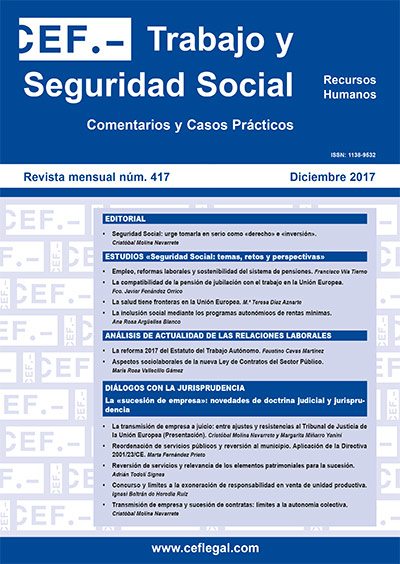Socio-occupational aspects of the Public Procurement Law: innovations and critic points
DOI:
https://doi.org/10.51302/rtss.2017.1722Keywords:
public procurement, social clauses, working conditions, salary, reserved contractsAbstract
Last October 19, the Congress of Deputies agreed on the approval of Law 9/2017 on Contracts of the Public Sector by which the Directives of the European Parliament and Council 2014/23/EU and 2014/24/EU of February 26, 2014 are transposed into Spanish law. The strategic vision of the law is the promotion of sustainable development policies moving towards the consideration of the public contract as an investment rather than an expense. The novelty that we address in this work, are the express references to the social value of public procurement contained in itself, that is specified in strengthening the workers’ position in contracts, establishing essential obligations in terms of employment conditions and retribution, and in the reorientation of the evaluation criteria of the offers using qualitative components of the provision for the selection of the most favourable offer. This implies the inclusion of social aspects in public hiring from the establishment of social clauses and the extension of the possibility of reservation of contracts. It has not been a law without controversy and it is neither clarifying in some aspects that we are about to discuss, which makes its comment especially interesting.



















